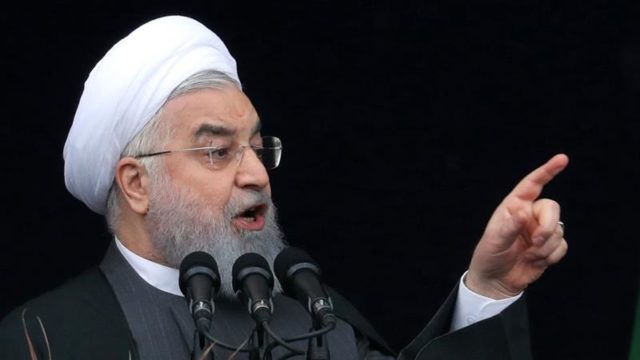A suicide bomber killed 27 members of the Islamic Revolutionary Guard Corps (IRGC) on Wednesday, the latest in a series of attacks against the Iranian government in the southern province of Sistan-Baluchestan.
Iranian state media reported that Jaish al-Adl (Army of Justice) claimed responsibility for the attack. The group, founded in 2012, has committed dozens of deadly bombings, abductions, and ambushes targeting the Iranian security forces. Recently, it’s escalated its insurgent attacks against the IRGC and other symbols of Tehran’s authority as the country’s Shiite theocracy celebrates 40 years since the 1979 Islamic Revolution. Earlier this month, a gunman opened fire outside a Basiji paramilitary base killing one IRGC member and wounding five more. In late January, two bombings wounded three police officers outside their station in Zahedan, the regional capital.
In the past, Iran has accused neighboring Pakistan, which also has a large Baluch minority, of harboring the group. The porous border with Pakistan and the province’s proximity to Afghanistan enables drug smuggling and criminal gangs to undermine Tehran’s authority in the region and promote general lawlessness.
Jaish al-Adl claims to seek better rights and more autonomy for the estimated 1.4 million ethnic Baluchis living in Iran. Baluchis, who are predominantly Sunni, often feel isolated from more developed parts of Iran, suffer from high unemployment rates, and lack essential infrastructure. Almost half of Iran is made up of non-Persian groups, all of which view the central government with some level of suspicion. Tehran’s general authoritarianism, paranoia over this ethnic-minority discontent, and antipathy towards Sunni-dominated rivals in the Middle East contribute to the government’s harsh treatment of Sunnis.
Nevertheless, Iranian leaders never miss a good opportunity to blame the West for their problems. In a speech on Thursday, Iranian President Hassan Rouhani accused the United States and Israel of supporting the terrorists. “The crime will remain as a ‘dirty stain’ in the black record of the main supporters of terrorism in the White House, Tel Aviv and their regional agents,” Rouhani said.


